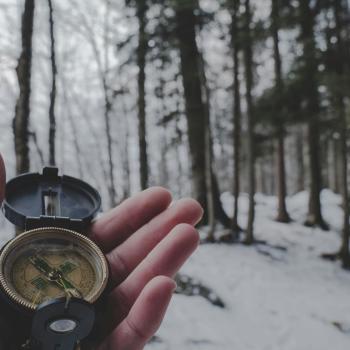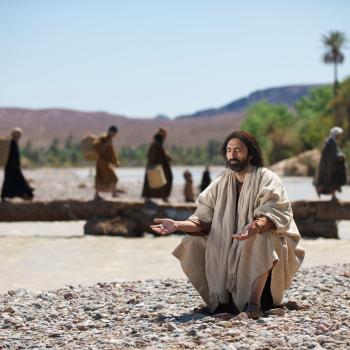By Rebecca Lynne Fullan
 Picture an enormous field of flowers. Flowers everywhere, all different kinds in all different colors, bending and moving in the wind. Now imagine a child and an adult standing among the flowers. The child looks around, wanting to pick them all. The adult explains that they can pick a few and make a bouquet, but that if they pick all the flowers, there won't be any left. Perhaps the adult waxes biologically poetic (if this adult is like my father, that is likely) and tells the child all about the mysterious life of the plant, how it grew from a seed, how its roots stretch down into the earth for water and nutrients, how it eats sunlight.
Picture an enormous field of flowers. Flowers everywhere, all different kinds in all different colors, bending and moving in the wind. Now imagine a child and an adult standing among the flowers. The child looks around, wanting to pick them all. The adult explains that they can pick a few and make a bouquet, but that if they pick all the flowers, there won't be any left. Perhaps the adult waxes biologically poetic (if this adult is like my father, that is likely) and tells the child all about the mysterious life of the plant, how it grew from a seed, how its roots stretch down into the earth for water and nutrients, how it eats sunlight.
Suitably impressed, the child runs off, convinced that the picking of one of these miracles must be a very big deal indeed. The little one comes back, carrying an enormous axe, ready to swing at one amazing flower -- and of course the adult laughs, and perhaps is a bit alarmed, and takes the axe away again.
"Here," we can imagine the adult saying, "It's okay. You can use your fingers."
This is the kindest metaphor I can imagine for much of the official sexual teaching of the Catholic Church. Sex, like the flowers, is beautiful and exciting. Sex is varied, and involves choices that matter. Sex is mysterious, biological, and miraculous. And I, along with bishops, cardinals, and popes, profess and believe that sex and sexuality (whether one is sexually active or not) are sacred. But to consign sexuality to a set of extremely stringent rules, where all acts but one (potentially procreative intercourse) in one context (heterosexual marriage), constitute grave sin, is both extremely foolish and extremely destructive.
It also is wildly at odds with much of the experience of being Catholic, the pervasively bodily and sensory experience of being part of a Church that affirms that we are what we eat, and what we eat is really, literally, fully the Body of Christ, who Himself is really, literally, fully God and human. 100% God + 100% Human = 100% Christ in your 100% bread item or sip of wine. That is a dazzlingly incarnate, mathematically impossible equation, and invites those who dally with it into a radical, intense, holy relationship with our skin, our flesh, our bones. Not to mention the incense, and all those sainted images, and the holy water and the taking each other's hands in Mass -- our bodies are involved, on every level, in what it means to be Catholic, and that involvement certainly touches our sexual development, experiences, and choices.
I realize that those who support the Church's official teaching would insist it is because of this relationship to the body, not in spite of it, that the sexual ethic exists as it does. Because our bodies are so sacred, they must be protected, and used properly.
Very well. But I affirm that it is because of this relationship to my body, and not in spite of it, that I can experience my sexual activity with my girlfriend, and my sexual expression alone with my own body, as life-giving, creative, God-connected experiences.
So, where does this leave us? The conflict between these points of view is real, and harsh, and battering. Recently, the Archdiocese of Washington, D.C. threatened to cut all social services partnerships with the city if the proposed same-sex marriage law passed as written. This threat is a powerful swing of a mighty big axe, and the force behind the blow implies that the Church (at least officially, at least in D.C.) cares more about not recognizing covenantal homosexual relationships (with such things as health care benefits) than about feeding the hungry and sheltering the homeless.
I feel struck by this blow, and I know others are struck and struggling too. There are other Catholics who are lesbian, gay, or bisexual. There are transgendered Catholics of all sexual orientations. There are Catholics using birth control, having sex outside of marriage, and wrestling with abortion. There are those having these experiences who stumble away, fearing the edge of the axe, and there are those having these experiences who are in the pews, in the choirs, in religious orders, placing Communion in your hand, as well as consecrating it, and trying to make sense of the beauty, resilience, fragility, danger, and joy of their sexualities.
It is this making sense that is perhaps the quietest casualty of a legalistic sexual ethic. Almost everyone experiences sex as powerful, anyone who opened an ear in health class understands sex as dangerous, and many also experience its wild beauty and moments of sacred connection. Yet as long as we are given an axe with which to cut a flower, it is far more difficult to comprehend the subtler moral choices inherent in sexual activity.




